History
1802
John Arkell born
1830
John Arkell emigrated to Canada and established the village of Arkell
1833
John Arkell returned to England
1843
Arkell's Brewery established in Swindon Road, Stratton St Margaret The Kingsdown Inn (relocated in 1867)
1856
The Carriers Arms (later The Lord Raglan; closed in 1907)
1861
Arkell's Brewery built at Kingsdown The George, Kempsford
1862
The Fox Inn, Highworth
The Harrow, Wanborough (10-year lease)
1864
The Golden Cross, Cirencester
The Artillery Arms, Regent Street, Swindon (Demolished 1936)
1866
The Tavern Inn, Greatfield (later renamed The Butchers Arms, closed 2000)
1867
The Kingsdown Inn rebuilt on its present site
The Plough Inn, Swindon
1868
The Crown Inn, Stratton St Margaret
1869
The Brewers Arms, Cirencester
The Eight Bells, Fairford
The Duke of Wellington, Swindon
1870
The Bakers Arms, Faringdon
1871
The Wheatsheaf, Stratton St Margaret
The Great Western Hotel (now The GW)
The Plume of Feathers, Cirencester (now The Bee's Knees)
1872
The Wild Deer, Swindon
The Mechanics Arms, Cheltenham Street, Swindon (closed and demolished in 1961)
1873
The Brewers Arms, Wanborough
The Dolphin, Swindon
The Duke of Edinburgh, Swindon
1874
The Red Lion, Lechlade
1875
The White Hart, Moredon, Swindon (closed in 1877)
The Bull, Highworth (closed in 1881)
1876
The Borough Arms, Wootton Bassett
1877
Maltings Erected
The Talbot Inn, Cirencester
The Red Lion, Swindon (now The Boundary House)
The Carpenters Arms, Gorse Hill, Swindon (demolished in 1964 and rebuilt in Chapel Street, now The Swiss Chalet)
1878
The Bell Vue Inn (now Long's Bar)
The White Hart, Stratton St Margaret
1879
The Fox and Hounds, Wroughton
1880
The New Inn, Cromwell Street, Swindon (demolished in 1969)
1881
The Bakers Arms, Swindon
The Clifton Hotel (now The Clifton)
The Carpenters Arms, South Marston
John Arkell died
1883
The Saracens Head Hotel, Highworth
The Running Horse, Swindon
1884
The New Inn, Stratton St Margaret The Angel, Purton
1885
The Kings Arms Hotel (now The Kings), Swindon
The Foresters Arms, Fleet Street, Swindon (demolished in 1959)
The Gardeners Arms, Westcott Place, Swindon (demolished in 1979)
1886
The Lamb and Flag (now Bar Cuba)
The Mason Arms, Old Town, Swindon (demolished in 1969)
1889
The Three Tuns, Wroughton
1891
The Black Horse, Wanborough
The Sun Inn, Swindon
1892
The Freke Arms, Swanborough
1896
The Bakers Arms, Upper Stratton
The Plough Inn, Highworth
1897
The County Ground Hotel, Swindon
The malt Shovel, Highworth (demolished 1907)
1899
The Plough Inn, Stratton St Margaret (now The Rat Trap)
1900
The Plough Inn, Fairford
1904
The Axe and Compass, Wanborough (closed in 1907)
1906
The Bakers Arms, Badbury
The Wheatsheaf, Wootton Bassett (now Sally Pussey's Inn)
The Old Bear, Cricklade
1907
The Plough Inn, Badbury
1910
Launch of Best Bitter Beer (later called BBB, then 3B)
1922
The Jolly Tar, Hannington
The Royal Oak, Lechlade
1923
Peter Arkell born
The Duke Hotel, Hilmarton
1924
The George Hotel, Lambourn
The Masons Arms, Aldbourne (sold in 1990)
1926
The Bell, Purton Stoke
1927
Arkell's becomes a private limited company
Bottling plant opened
1931
The Crossways Club, Upper Stratton (now The Moonrakers)
1943
Arkell's 100th Anniversary
1951
Present Chairman, James Arkell, born
The Curriers Arms, Wootton Bassett
The Royal Oak, Bishopstone
The Tavern Inn, Kemble
1954
Peter Arkell, became a Director
1955
R Holgate-Smith appointed Head Brewer
1959
The Steam Train, Swindon (now The Manor)
1962
John Arkell Vintners established
1964
The Carpenters Arms, Swindon (now The Swiss Chalet) relocated
1967
Don Kenchington appointed head brewer
Austin Amusements established
1971
Peter Arkell became Chairman
1972
The Highwayman, Elkstone
1973
Present Chairman, James Arkell, became a Director
The Bull Hotel, Fairford
The White Hart Hotel, Cricklade
1976
Launch of Kingsdown Ale
The Victoria Inn, Eastleach
1978
Launch of Arkell's Shandy
1979
Arkell's buys 50 per cent of shares in Edmont Joinery
The George, Fairford (closed in the same year and added to the adjoining Bull Hotel)
1980
The Liden Arms, Swindon
1982
First Arkell's Passport promotion
1983
The Duke of Edinburgh, Winkfield
1985
The Woodshaw Inn, Wootton Bassett
1986
The Crown Inn, Broad Hinton
1987
Launch of Noël Ale
The Bear, Marlborough
Globe Inn, Gloucester
1989
The Lord Lyon, Stockcross (now Rybaks) The Thames Head Inn, Cirencester
1991
The Plough, Stratton, Cirencester
The India House, Gloucester
The Whitesmiths Arms, Gloucester
The Sir Colin Campbell, Gloucester
1991
The Adam and Eve, Cheltenham
The Exmouth Arms, Cheltenham
The Hereford Arms, Cheltenham
The St James Hotel, Cheltenham
1992
Don Bracher appointed Head Brewer
The Coopers Arms, Newbury
Ye Old Red Lion, Chievely
1993
Arkell's 150th Anniversary
1994
The Rose and Crown Hotel, Ashbury
1996
The Cross Keys, Newbury
The Friar, New Marston
1997
Peter Arkell awarded OBE
The Globe, Gloucester
The Original Swan, Cowley
1998
Arkell's Brewery website launched
1999
The Eagle Tavern, Oxford
The Hare and Hounds, Foss Cross
The Cat and Fiddle, Cheltenham
Cassidy's, Cheltenham (now Bar Cuba)
2000
The Bantam, Burghfield Common
The Bolingbroke Hotel, Hook
The Jovial Monk, Shaw Ridge, Swindon
2001
Organic Ale launched
The Winkfield, Winkfield
2002
Jubilee Ale launched
2003
Arkell's 160th anniversary
Peter Arkell's 80th birthday - Moonlight Ale launched
The White Hart, Whitchurch
The Rising Sun, Reading
The Tawny Owl, Taw Hill, North Swindon
George Arkell married
2004
The Punchbowl, Woodstock
2005
The Great Arkell's Adventure launched
Swindon Pride Ale launched
The King's Arms, Chipping Norton
The White Horse at Woolstone
2006
Her Majesty the Queen's 80th Anniversary Ale launched
The Bear Hotel, Wantage
2007
Cask-conditioned Organic Ale launched
The Bear, Marlborough
Globe Inn, Gloucester
The Lansdowne, Calne
The Volunteer, Great Somerford
2008
The Riverside, Lechlade
First official Royal visit to brewery - HRH The Duke of Kent
James Arkell became Chairman
2009
The Mason's Arms, Meysey Hampton
Arkell's Pilsner is launched
2010
Alex Arkell joins the Brewery
2011
Rickety Press, Oxford
New fermenting vessels installed (Will & Kate)
2012
Kings Arms, Malmesbury
Fox & Hounds, Haydon Wick
Alex Arkell becomes Head Brewer
2013
Arkell's 170th anniversary
Alex Arkell married
The Angel, Royal Wootton Bassett
Rooms added to The Sun Inn, Swindon
Arkell's 1843 lager launched
2014
Experience Craft Ales launched
Arkell's 1843 Lager wins Gold at SIBA National Beer Competition
James Arkell inaugurated as the Master of the Worshipful Company of Brewers
International Hop Collection Launched
Old Contemptible brewed to mark WW1 100 year anniversary
2015
Arkell's Academy launched
The Southbrook, Swindon
Rooms added to The White Hart, Stratton
2016
Arkell's Flavour Collection launched
Hoperation IPA added as a house beer
Steam Beer series brewed to celebrate Swindon175
Kingsdown named Champion Beer at the 2016 Taste of the West Awards
2017
Rudi's, Swindon
The Priory, Tetbury
The Crown, Cirencester
Mustang Black added as a house keg beer
Rooms added to The Royal Oak, Bishopstone
First brewed:
Strawberries 'n Cream
Triple Bogey
Pumpkin Beer
Old Contemptible, marking the centenary of WW1
2018
Arkell's 175th anniversary celebrated with the visit of HRH The Duchess of Cornwall, who officially opened The Grape & Grain Wine & Brewery Warehouse and Brewery archive.
First brewed:
Pioneer IPA
2021
Voyager American Pale Ale launched
Arkell's break ground on their newest pub, The Strawberry Thief, set to open in 2022
2022
Strawberry Thief, Tadpole Garden Village
Eliot Arms, South Cerney
Smoky first brewed
2023
Arkell's celebrate their 180th anniversary since John Arkell founded the Brewery in Kingsdown, Swindon, in 1843.
Brewery Tours launched
Haze, Arkell's first gluten-free, vegan beer launched
Petrol Head, celebrating 100 years of MG, first brewed
Coronation Ale brewed to toast King Charles III
2024
Airs & Graces, Cheltenham
Honest John, Nitro Best Bitter, launchedFirst brewed:
Donkels, Arkell's first collaboration beer with Donnington Brewery
Summer Saison
Winter Warmer
2025
Jack's Juicy IPA first brewed
The Old Stocks Inn, Stow-on-the-Wold
Malthouse Lager made available in cans
New pub plaques unveiled
Legacy lager launched
Hop Drop launched
History
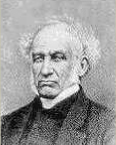 Anyone visiting Arkell's Brewery for the first time could be excused for thinking they have walked straight into a time machine.
Anyone visiting Arkell's Brewery for the first time could be excused for thinking they have walked straight into a time machine.
The beer is still brewed in much the same way as it was when John Arkell first made it in 1843 and the brewery buildings seem untouched by the passing years. If you speak to any of the staff about the company it is clear that everyone is still as fiercely proud of its local and family roots as John Arkell was himself.
But Arkell's has not achieved its unique position as Swindon's oldest company and one of the oldest traditional breweries still operating in Britain today, simply by standing still.
The company has remained true to the principles of loyalty, quality and tradition set down by its founder 180 years ago, but it has also adapted brilliantly to the changing world around it. Some things never change at Arkell's, but it is the ability to change effectively when change is necessary that has been at the cornerstone of the brewery's success story over the last 180 years.
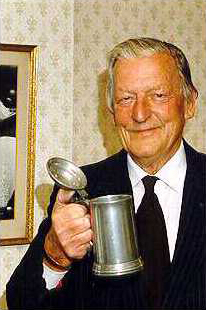 John Arkell was a remarkable man. Born into a farming family in 1802 in Kempsford, South Gloucestershire, he emigrated to the New World in his late
twenties and took with him a group of local people who sought a refuge from the tough conditions endured by agricultural folk at that time. It was a brave step.
John Arkell was a remarkable man. Born into a farming family in 1802 in Kempsford, South Gloucestershire, he emigrated to the New World in his late
twenties and took with him a group of local people who sought a refuge from the tough conditions endured by agricultural folk at that time. It was a brave step.
They arrived in Canada and established the small community of Arkell - which still exists today - but three years later, John returned for love. His fiancée preferred to live in England so he came home to marry and set up home in Stratton St Margaret, near Swindon, where he grew barley on his farm.
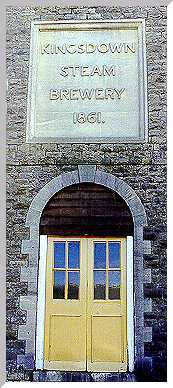 It was a natural step to turn to brewing beer, which at that time was commonly produced by many pubs and in many more private homes. But it took the
foresight of John Arkell to realize the potential market for supplying beer to a string of other pubs as well as his own Kingsdown Inn, which he had just bought.
It was a natural step to turn to brewing beer, which at that time was commonly produced by many pubs and in many more private homes. But it took the
foresight of John Arkell to realize the potential market for supplying beer to a string of other pubs as well as his own Kingsdown Inn, which he had just bought.
His timing was perfect. Isambard Kingdom Brunel had just chosen Swindon as the site of his works on the Great Western Railway and the once sleepy market town was already developing into a bustling (and thirsty) industrial centre.
A major expansion into Swindon would come some years later as the town continued to grow, but to begin with he contented himself with leasing just one Swindon pub, the Carriers Arms, (later the Lord Raglan) in Old Town. It was 1856 and so successful was John's makeshift brewery that he was inviting friends to dine inside his new 3,000-gallon barrel.
But the business was already outgrowing the farm and in 1861 a new steam brewery was built behind the original Kingsdown Inn at Upper Stratton.
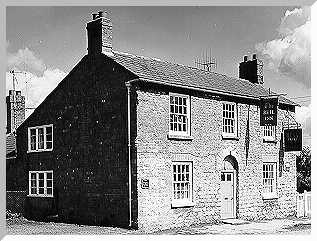 Arkell's bought The Fox Inn in Highworth in 1862, The Golden Cross at Cirencester in 1864, The Tavern at Greatfield (later renamed The Butchers Arms) in
1866 and supplied The Harrow, Wanborough on a ten-year lease. Soon, John opened his second Swindon pub, The Artillery Arms in Regent Street, which survived
until 1936 when it was demolished to make way for a new Woolworth's store.
Arkell's bought The Fox Inn in Highworth in 1862, The Golden Cross at Cirencester in 1864, The Tavern at Greatfield (later renamed The Butchers Arms) in
1866 and supplied The Harrow, Wanborough on a ten-year lease. Soon, John opened his second Swindon pub, The Artillery Arms in Regent Street, which survived
until 1936 when it was demolished to make way for a new Woolworth's store.
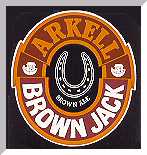 By 1867 the business had even outgrown the new brewery and John was forced to convert the old Kingsdown Inn into offices and build a new pub across the road. Yet the expansion was still gathering pace and John was to buy up another 20 pubs in the next ten years. Acquisitions reached a peak with the addition of three
pubs in one year (1877) and a further seven by 1881. Now the majority of the expansion was aimed firmly at Swindon.
By 1867 the business had even outgrown the new brewery and John was forced to convert the old Kingsdown Inn into offices and build a new pub across the road. Yet the expansion was still gathering pace and John was to buy up another 20 pubs in the next ten years. Acquisitions reached a peak with the addition of three
pubs in one year (1877) and a further seven by 1881. Now the majority of the expansion was aimed firmly at Swindon.
Sadly, John Arkell was to see his tied estate grow no more. He died on 21st October, 1881, much mourned by a local community who always knew him as 'Honest John'. The Swindon Advertiser noted that shops were closed and blinds drawn as the funeral cortege passed to Stratton Church and added: "He was open and above board and Radical in all he said and did. The poor had lost a good friend, a plain and simple friend."
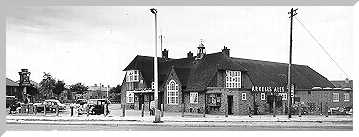 Despite his loss, there was no question of the brewery floundering after John's death. After all, he had built his business on solid foundations and
strong and fair principles which would be passed down from generation to generation while the business remained tightly in family hands.
Despite his loss, there was no question of the brewery floundering after John's death. After all, he had built his business on solid foundations and
strong and fair principles which would be passed down from generation to generation while the business remained tightly in family hands.
Sons Thomas and James took over and Arkell's continued to expand, still focusing on the boomtown of Swindon. The pubs would serve both Arkell's and the community well as the railway works headed for its heyday after the turn of the century.
Arkell's mainly bought up pubs thrown on to the market when rival breweries folded. It was the company's ability to not only survive but also to thrive when other smaller breweries were closing or facing takeover that has been perhaps the most remarkable feature of the story.
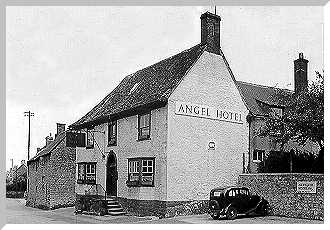 By 1900, Arkell's owned more than a quarter of the pubs in the Swindon area and was firmly established as a cornerstone of life in the town, which was now
almost unrecognisable from its humble status of 60 years before.
By 1900, Arkell's owned more than a quarter of the pubs in the Swindon area and was firmly established as a cornerstone of life in the town, which was now
almost unrecognisable from its humble status of 60 years before.
But there was a limit to how fast Arkell's could expand and the latter years of Thomas and James' management of the brewery saw a period of consolidation of the tied estate. When Thomas died in 1919 at the age of 80, the brewery had bought no new pubs in two decades, though another five were added to the chain before James, aged 75, passed away in 1925.
Arkell's became a private limited company in 1927 with all shares owned by the family - as, indeed, is the case today. Now at the helm were James' sons, Thomas Noel (later Sir Noel), James Graham and John Oliver Arkell.
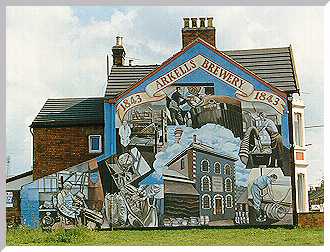 By now the brewery was over 70 years old and it was time to modernise, so the 1930s saw the closure of the maltings and the opening of a high-tech bottling
plant which employed up to 25 people. The period also saw the foundation of a mineral water plant which gave birth to the fondly-remembered Ace brand of soft drinks.
Meanwhile, the new brewery chimney was added to the Stratton skyline for the first time.
By now the brewery was over 70 years old and it was time to modernise, so the 1930s saw the closure of the maltings and the opening of a high-tech bottling
plant which employed up to 25 people. The period also saw the foundation of a mineral water plant which gave birth to the fondly-remembered Ace brand of soft drinks.
Meanwhile, the new brewery chimney was added to the Stratton skyline for the first time.
Despite the slow recovery period after the Second World War, a handful of new pubs were added to the Arkell's estate and, in 1954, Peter Arkell, the eldest son of Sir Noel, joined the company as a director.
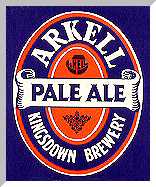 A war veteran who had seen service with the RAF in Burma, Peter had spent a year in hospital after crashing behind enemy lines. He brought valuable brewing
experience to Arkell's as a former director at the Tadcaster Tower Brewery.
A war veteran who had seen service with the RAF in Burma, Peter had spent a year in hospital after crashing behind enemy lines. He brought valuable brewing
experience to Arkell's as a former director at the Tadcaster Tower Brewery.
Peter, who was awarded the OBE in the Queen's Birthday Honours in 1997, once said: "My initials are 'PA' - Pale Ale. I was born in the brewery and I married a brewer's daughter. I'm in it up to my neck!"
With Sir Noel, Graham and Peter as a board of directors, the Sixties was to see another groundbreaking era in the history of Arkell's as it took its first steps in the wine and spirits market, buying out local firm Brown and Plummer's, which was actually owned by one of Peter's cousins.
It was another example of Arkell's adapting to shifting fashions in the drinks industry while still applying the same business methods that had served them so well for over a century. It would ensure Arkell's Vintners of its current status as the leading wine merchants in the area under Sales and Vintners Director, Nicholas Arkell.
 Further diversification came in 1967 when Arkell's formed a partnership with Derek Austin to supply the growing demand for amusement machines in pubs and
in 1979 it also secured a 50 per cent interest in Edmont's Joinery, a company employing 70 people which carries out much of the refurbishment of Arkell's pubs.
Further diversification came in 1967 when Arkell's formed a partnership with Derek Austin to supply the growing demand for amusement machines in pubs and
in 1979 it also secured a 50 per cent interest in Edmont's Joinery, a company employing 70 people which carries out much of the refurbishment of Arkell's pubs.
There were changes, too, back at the brewery, where the mineral plant was closed in 1962 and the cooper's shop - made redundant by the introduction of metal casks in 1960 - sadly followed in 1968.
In the boardroom, Peter Arkell became chairman in 1971, a year before the death of Graham Arkell and ten years before Sir Noel, Peter's father, passed away. Meanwhile, a new Arkell generation - the fifth - was being groomed to help lead the business towards and beyond its 150th anniversary.
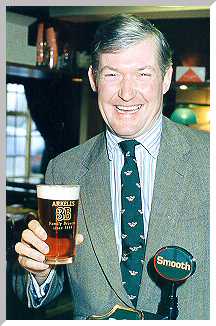 James Arkell (pictured left) was born in 1951 and by the time he became a director in 1973, he had already learned the art of brewing at the
Donnington Brewery near Stow-on-the-Wold, owned by second cousin Claude Arkell, and with spells at Baird's the maltsters and Bass. James is now chairman, having taken over from father Peter in 2010.
James Arkell (pictured left) was born in 1951 and by the time he became a director in 1973, he had already learned the art of brewing at the
Donnington Brewery near Stow-on-the-Wold, owned by second cousin Claude Arkell, and with spells at Baird's the maltsters and Bass. James is now chairman, having taken over from father Peter in 2010.
The Seventies and Eighties saw Arkell's secure itself an enviable reputation among lovers of traditional beer as the consumer revolution set off by the Campaign for Real Ale left the company well placed to take advantage of beer drinkers' discerning attitude towards the quality of beer.
If the 150th anniversary celebrations in 1993 were a time for looking back to Arkell's magnificent past, the 1990s were also a time for the business to look forward to the future with confidence.
A wholesale disposal of Whitbread pubs saw Arkell's buy up and breathe new life into eight pubs in Gloucester and Cheltenham in 1991 and this was to herald an expansion even more rapid than the one masterminded by John Arkell in the last century. The brewery now has pubs in places as far away as Oxford, Newbury and Ascot and a busy free trade, mainly through the Thames Valley and into London.
Meanwhile, the original bottling store, which closed in 1983, was replaced in 1997 by a new, high-tech plant which is ensuring that Arkell's customers can once again enjoy their beer at home.
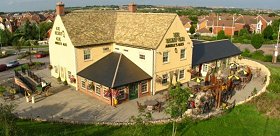 As the millennium approached, Arkell's had over 100 pubs under its wing - many of them extensively refurbished - meaning the Brewery was not only ready for whatever changes the 21st century will bring to its business and its products, but it relished the challenge.
As the millennium approached, Arkell's had over 100 pubs under its wing - many of them extensively refurbished - meaning the Brewery was not only ready for whatever changes the 21st century will bring to its business and its products, but it relished the challenge.
By the time of Arkell's 160th anniversary in 2003, Arkell's had added a further seven pubs and spread its wings even more into Berkshire with acquisitions in Reading and Whitchurch plus new builds in the expanding northern sector of Swindon.
The Queen's Golden Jubilee was also celebrated with a special Jubilee beer in 2002, with Arkell's first all-organic ale first launched just a year before winning numerous awards for its delightful 'honey' flavour.
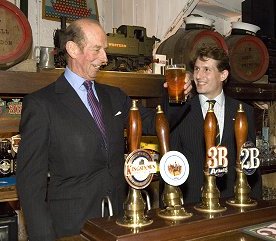 2003 was also very special year for the Arkell's family and the brewery with the 80th birthday of Chairman Peter Arkell - marked by the brewing of Moonlight ale to recognise his World War 2 bravery as a nightime pilot - and the marriage of George Arkell.
2003 was also very special year for the Arkell's family and the brewery with the 80th birthday of Chairman Peter Arkell - marked by the brewing of Moonlight ale to recognise his World War 2 bravery as a nightime pilot - and the marriage of George Arkell.
And by the time the Brewery welcomed its very first Royal guest in 2008 with the visit of HRH The Duke of Kent, Arkell's had continued to expand with further investment in pubs and hotels in Oxfordshire, Gloucestershire & Wiltshire to bring the number of establishments under the Arkell's name to over 110.
That year, James Arkell also became chairman, with Alex Arkell, James's youngest son making the decision to join the family business, firstly as a 'tenanted' pub landlord at The Rusty Bicycle in Oxford.
Sadly in 2010, Peter Arkell, the inspirational head of the Arkell's family and brewery, passed away at the age 87.
2012 brought the retirement of long-standing head brewer Don Bracher with the position being taken up by Alex Arkell, James' youngest son. After training as a Master Brewer in the US and Germany, Alex is now taking Arkell's beer in a fresh, new direction reflecting the reassurgence of real ale and craft brewing of which Arkell's is at the forefront.
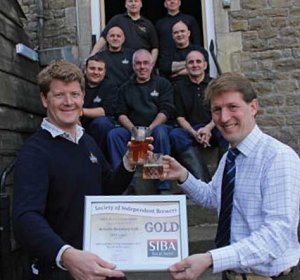 So as 2013 arrived, the incredible milestone of 170 years as brewers was celebrated with a beer festival at the brewery.
So as 2013 arrived, the incredible milestone of 170 years as brewers was celebrated with a beer festival at the brewery.
Fitting then that in 2014 James Arkell was hugely honoured to be inaugurated as the Master of the Worshipful Company of Brewers, one of the oldest City Guilds which dates back to the 12th Century, just a few weeks after Arkells won Gold at The Society of Independent Brewers (SIBA) National Beer Awards for their 1843 Lager.
Add in the highly prestigious Champion Beer Award for Arkell’s Kingsdown at the 2016 Taste of the West Product Awards, plus the building and opening of their biggest pub, The Strawberry Thief, in 2022, plus recent acquisitions incl. The Eliot Arms in South Cerney, and you have a family brewing business first started by John Arkell in 1843 now celebrating its 180th anniversary, never looking stronger.
The late Dave Backhouse, chairman of the Swindon branch of CAMRA, said: "Given its combination of tradition and efficiency, we can hope for a long and prosperous future for this well-run local company."
We'll drink to that!





